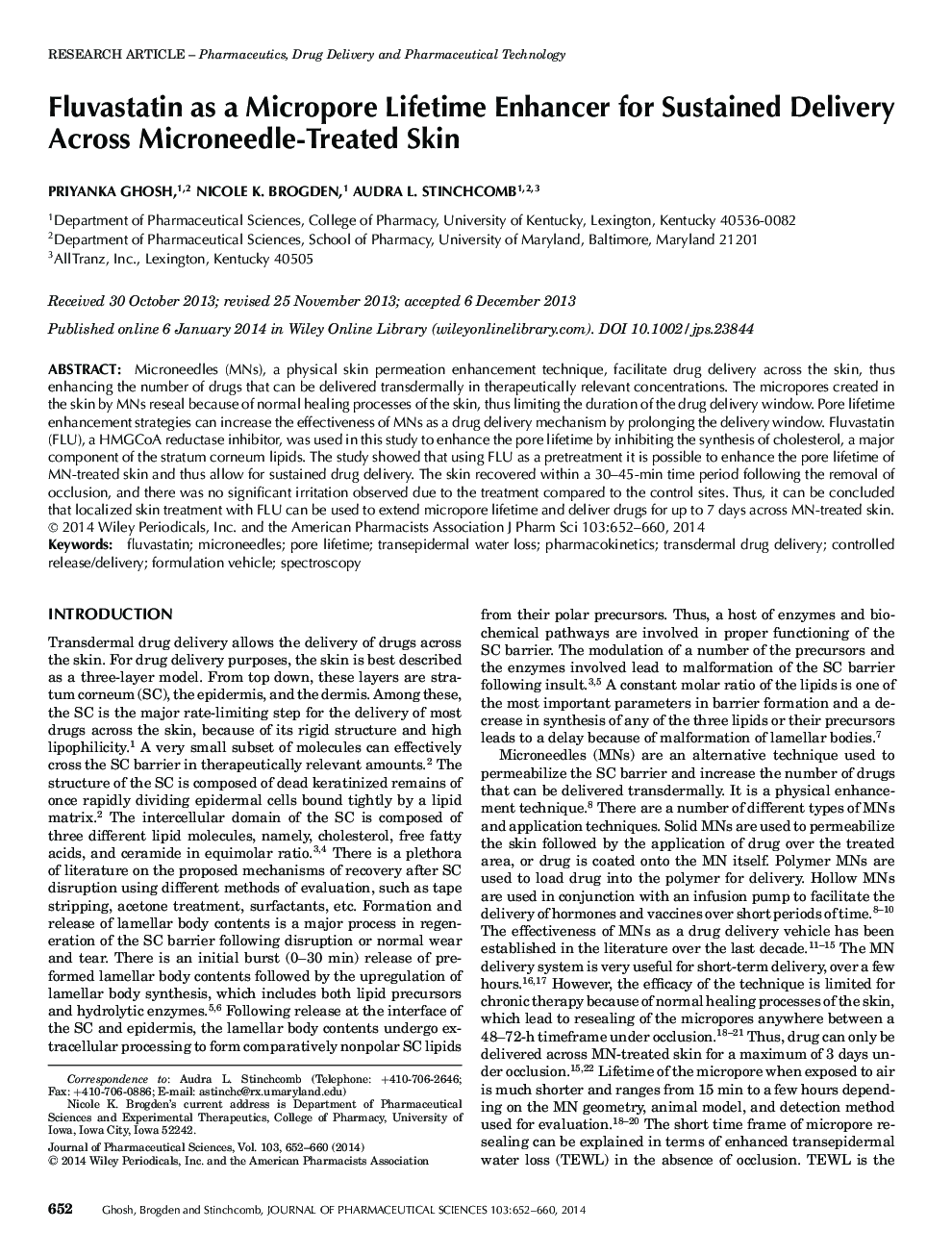| Article ID | Journal | Published Year | Pages | File Type |
|---|---|---|---|---|
| 10162612 | Journal of Pharmaceutical Sciences | 2014 | 9 Pages |
Abstract
Microneedles (MNs), a physical skin permeation enhancement technique, facilitate drug delivery across the skin, thus enhancing the number of drugs that can be delivered transdermally in therapeutically relevant concentrations. The micropores created in the skin by MNs reseal because of normal healing processes of the skin, thus limiting the duration of the drug delivery window. Pore lifetime enhancement strategies can increase the effectiveness of MNs as a drug delivery mechanism by prolonging the delivery window. Fluvastatin (FLU), a HMGCoA reductase inhibitor, was used in this study to enhance the pore lifetime by inhibiting the synthesis of cholesterol, a major component of the stratum corneum lipids. The study showed that using FLU as a pretreatment it is possible to enhance the pore lifetime of MN-treated skin and thus allow for sustained drug delivery. The skin recovered within a 30-45-min time period following the removal of occlusion, and there was no significant irritation observed due to the treatment compared to the control sites. Thus, it can be concluded that localized skin treatment with FLU can be used to extend micropore lifetime and deliver drugs for up to 7 days across MN-treated skin.
Keywords
Related Topics
Health Sciences
Pharmacology, Toxicology and Pharmaceutical Science
Drug Discovery
Authors
Priyanka Ghosh, Nicole K. Brogden, Audra L. Stinchcomb,
